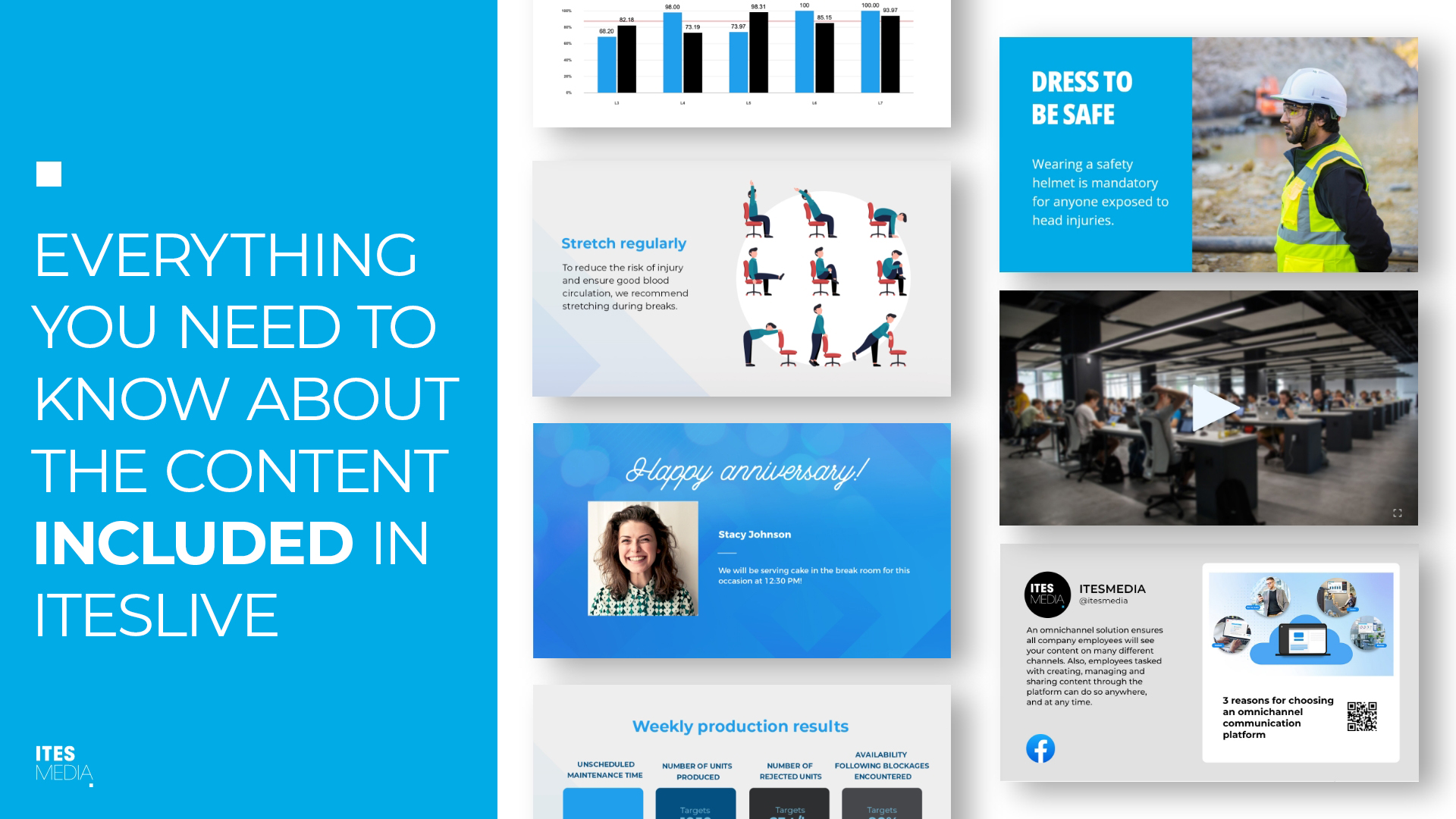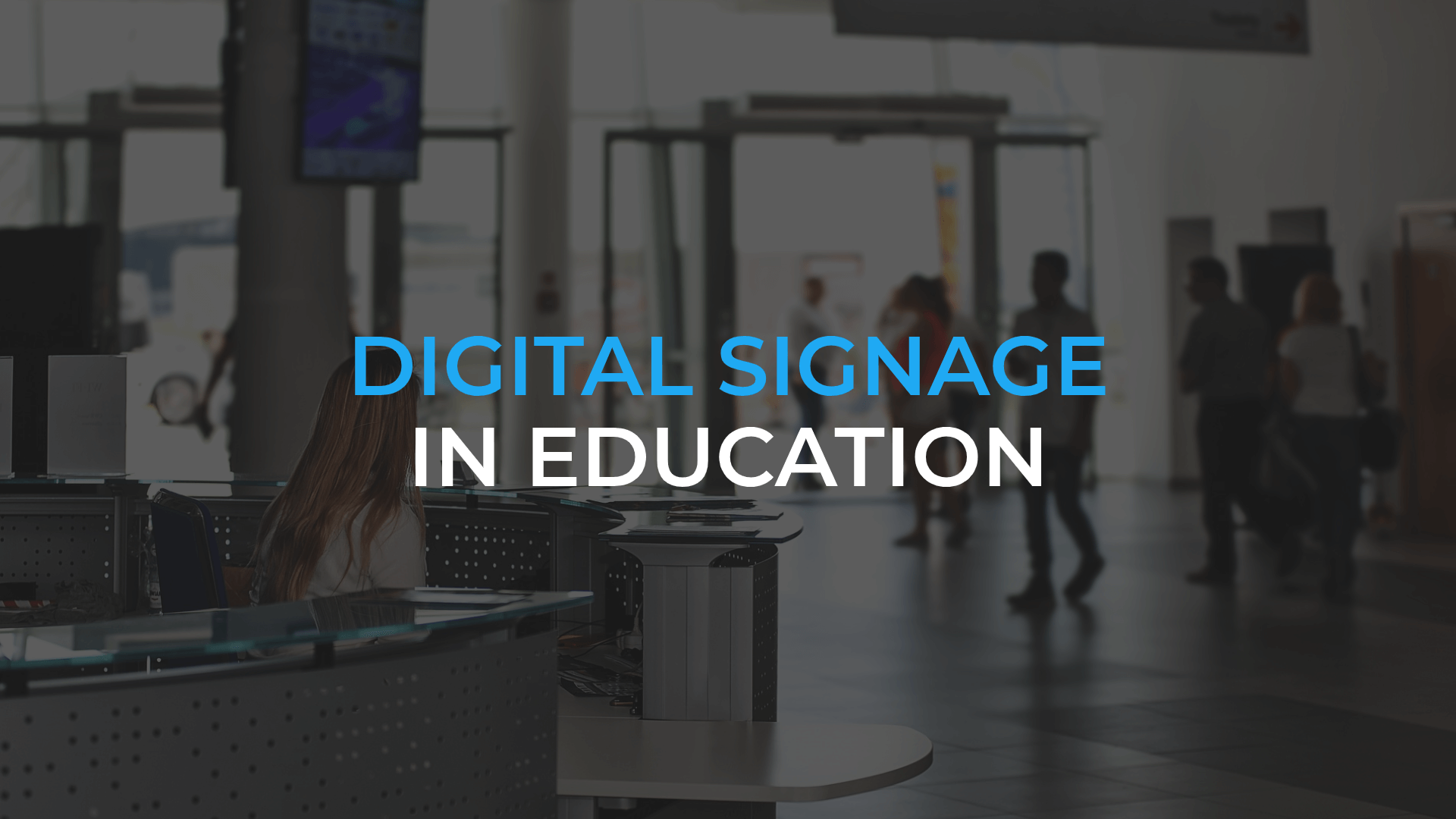Have you ever seen an ad that stayed with you for a long time? Did you ever wonder how a simple slogan can have such a deep impact? Ads that seem to owe their success to a stroke of luck are, in general, very well planned from the moment they are created until they are released and are rarely the work of a single person. The same goes for internal communications. The outcome seen by your audience is the result of many steps leading towards the winning combination that allow you to communicate the right message at the right time and to the right people, all the while using the right tone and the style of your brand – and nothing less.
This is about content strategies. At ITESMEDIA, we call this process the “Communication success strategy”. Digital signage software is the heart of ITESMEDIA, and content strategy is its brain.
Which matters most – content or container?
It’s the same as asking “Which came first, the chicken or the egg?” – one cannot go without the other. If you are a manager, you’re probably looking for an effective, easy-to-use tool with a programming function to facilitate information distribution for your internal marketing campaigns. However, for people viewing a screen, software performance is not an incentive to read the content. As such, the communications manager’s requirements are not the same as the target audience’s needs. In this context, the content is at least as important as the container, and perhaps even more.
Who’s talking? Who’s listening?
Which information needs to be communicated? When? Which images should be used? How much information can fit on a slide? When you need to create a communication campaign with content adapted to your company’s environment, you will need to answer a lot of questions to properly target the message and the recipients.
Below are the steps we follow with our clients during a content strategy process. These can be done alone or with colleagues.
1. Define the objectives
What is your intent? Do you wish to inform, convince, entertain your public, or increase employee retention? Whether the message is intended for internal communications or for large-scale retail distribution, achieving your goals means communicating regularly with your audience. It is therefore critical to start your content strategy by identifying your communication campaign’s objectives and, preferably, making sure they are aligned with the company’s mission.
2. Identify and understand your audience
- Who are you talking to? Employees, clients, the general public, or even friends?
- Where will your audience be physically when you communicate with them through dynamic displays? In a corridor, a cafeteria, a waiting room, or outside?
- Are the people you will be talking to ready to listen to you? Your public’s mental availability could change depending on the position of the signage (for instance, a screen next to a coffee machine will not have the same effect as one inside a conference room).
- Which formula would work best for your audience? Reading, looking, listening, guessing? There are so many different ways to communicate!
To target your audience, no matter how large, a great exercise is to think about someone you know and whose profile matches the criteria of your intended audience. You will then have a precise example in mind while creating your message, which will help increase its retention rate.
3. Identify equipment and communication channels
Are the employees allowed to access their mobile at work? Can they go on social media sites during work hours? Are they using a computer all day long or do they operate machinery?
Being aware of the many (or the few) information sources witch employees can access will help evaluate the number of messages to publish.
4. Determine the types of content
What are your audience’s preferences? Do they prefer specific graphics and images, or a vocabulary in particular? Would they appreciate light content, or something more serious?
What emotion does the content generate? Can it make your employees smile or think, or call them to action? Think about the content you see on your social media. Diversity is the key to attract your public and, more importantly, to keep its attention.
5. Prioritize the information
Did you ever find yourself taking part in a lively discussion and trying to follow more than one conversation at a time? If yes, you have noticed the best way to listen to a conversation and to participate is to choose only one.
The same applies for the digital display communication channel: the most important message goes first.
6.Maximize sources that can automate the content
Using external sources to create content can be a winning move for everyone. For instance, news on your intranet can automatically appear on your screens. Reusing content can help you save time, and people can see it at more than one place (or not, depending on their preference).
Automated content can also be directly linked to your company’s activities and can display information in real time, such as production data, facilities' status (e. g. active, out of order, undergoing repairs), and even emergency messages when an alarm is triggered.
Are the news or the weather important for your public? Attention-grabbing information? If the answer is yes, these automated programming options are easy to integrate within your communication plan.
7. Create and include visuals
Digital signage can also be used to promote your company’s brand in every message. Strong visuals are always eye-catching, but harmonized typography, colors, image types (pictures, icons, characters, etc.) will create reading habits and help the reader recognize key messages.
Digital signage is a part of our lives
It’s everywhere. People are used to see it, and more and more read it. In a restaurant, customers will read the menu because they don’t have a choice. In a waiting room, people read to pass the time. In a corporate environment, they read to satisfy their curiosity. In any event, the content must be engaging and informative, and should support the company’s goals.
Successful content needs to be good and look good – and to achieve it, it takes a strategy!







